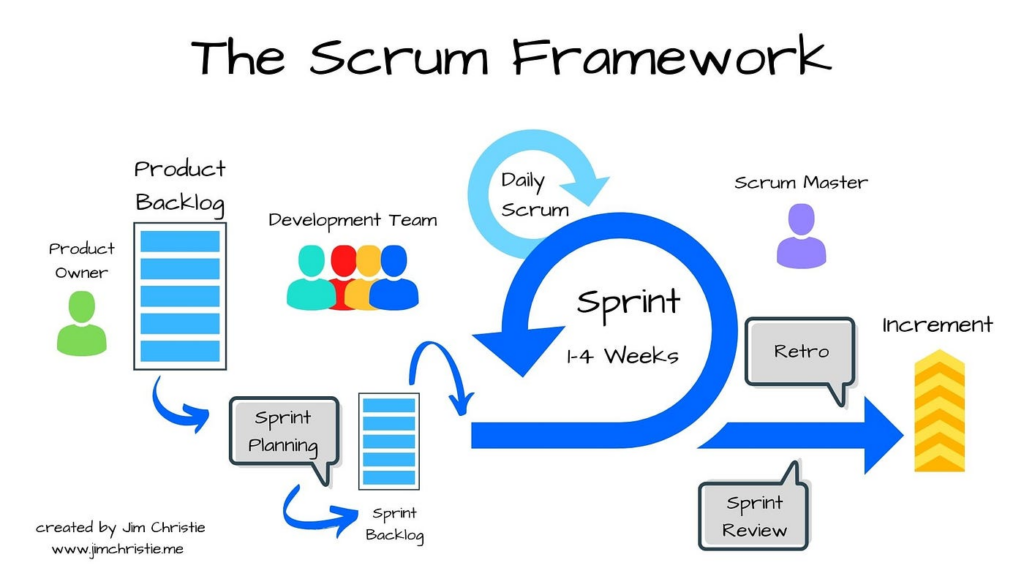Agile is a project management methodology that emphasizes flexibility, collaboration, and customer satisfaction. It was originally designed for software development but has since been adapted to various industries. Agile promotes iterative development, where requirements and solutions evolve through collaboration between self-organizing cross-functional teams.
Key Principles of Agile:
- Customer Collaboration: Involves frequent interaction with customers to understand their needs and make necessary adjustments.
- Responding to Change: Agile teams are flexible and can quickly adapt to changes even late in the development process.
- Working Software: The primary measure of progress is working software delivered in short cycles, usually called sprints.
- Individuals and Interactions: Emphasizes the importance of teamwork, communication, and the value of individuals in the development process.
Common Agile Frameworks:
- Scrum: A framework within which people can address complex adaptive problems, while productively and creatively delivering products of the highest possible value. Scrum is lightweight, simple to understand, but difficult to master.
- Kanban: A method for managing knowledge work with an emphasis on just-in-time delivery while not overloading the team members. Work items are visualized to give participants a view of progress and process, from start to finish.
Here are some visuals to help you understand Agile better:
1. Agile Process Overview:

2. Scrum Framework:

3. Kanban Board:
